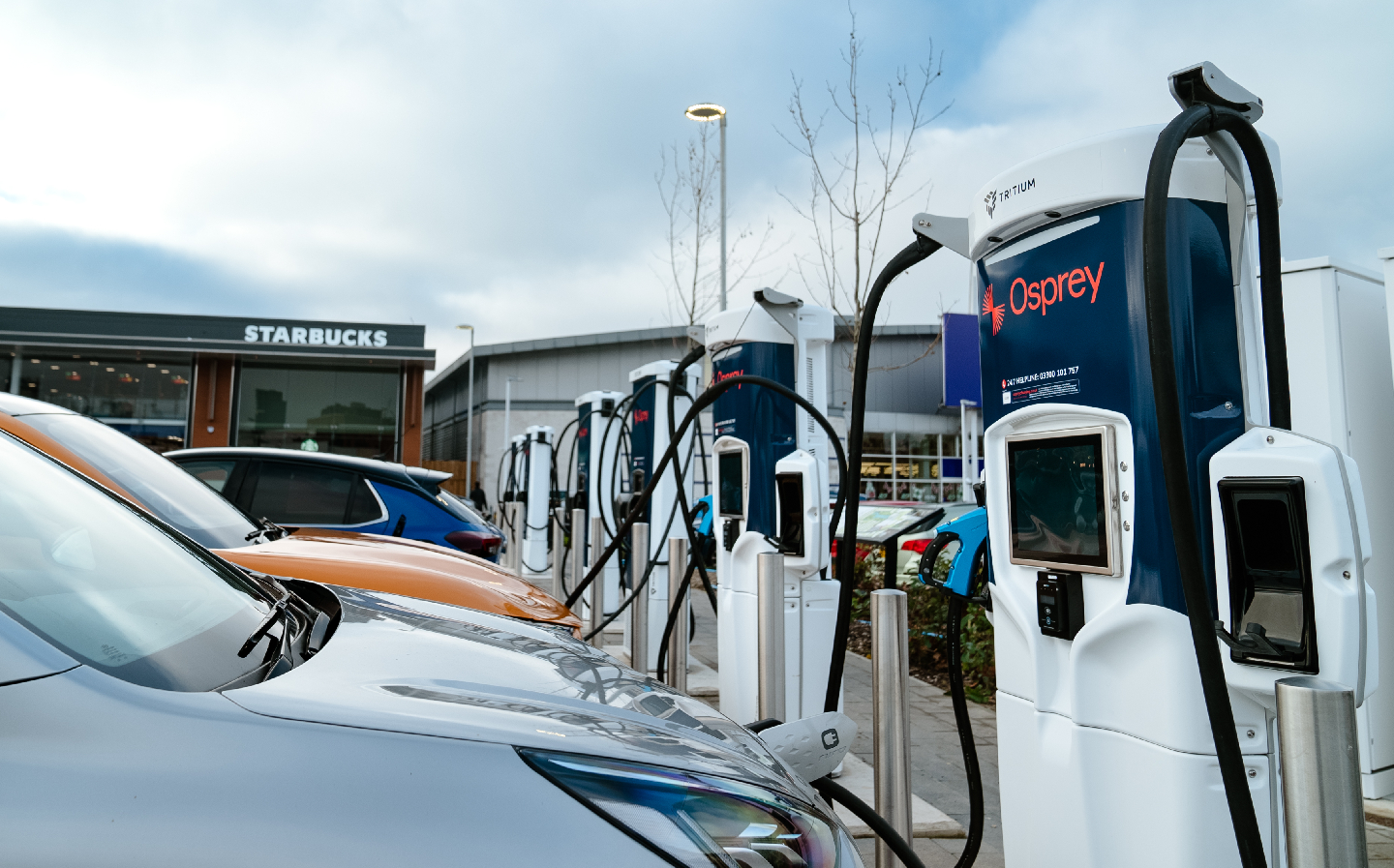Charging point rollout to be accelerated with new plan to cut red tape
Department for Transport reveals planned scheme to speed up charger installations.
The Department for Transport (DfT) has announced new proposals that it says could speed up the rollout of electric vehicle (EV) charging points in the UK.
The government says it will consult on plans to allow EV charge point operators the right to conduct street works using a permit, rather than the licence currently required.
Because permits are cheaper than licences and can be issued in a matter of days, rather than months, the DfT says the plan would reduce costs for operators and speed up the installation of charging points around the UK.
The consultation period begins today (February 5) and interested parties will be invited to have their say on the plans. This will inform the government’s decision on whether the proposals go ahead in their current form, or whether change is required.
The consultation will close on April 12, so any potential changes to the rules are not expected to take effect until at least late spring or early summer.
At the same time, the government will consult on proposed new rules for charging point installations, allowing wall-mounted chargers to be installed anywhere within an area lawfully used for off-street parking.
“We’re getting on with delivering our plan for drivers,” said technology and decarbonisation minister Anthony Browne, “and this latest set of measures will mean EV owners everywhere benefit from easier and more convenient access to charge points.
“This government has already spent over £2 billion to ensure a smooth switch to EVs, and we’re committed to supporting drivers as we transition towards net zero in a proportionate way that doesn’t burden working people.”
Despite Browne’s bullishness, the news comes just a month after it was revealed that the government had missed its target of installing at least six ultra-rapid charging points at every motorway services on the English motorway network by the end of 2023. In January, RAC analysis of ZapMap data found just 39 per cent of English motorway service stations had six or more ultra-rapid chargers.
Local incentives
Away from the motorway network, however, the government has announced the first instalments of its £381 million Local Electric Vehicle Infrastructure (Levi) fund have been delivered to councils in East Sussex, North Yorkshire and two London boroughs. The funding is designed to “support the installation” of new charging points across the country, with the central government collaborating with local authorities to build infrastructure.
According to the DfT, Levi will allow “thousands” of new charging points to be installed, with a total of more than £14 million in funding now allocated to growing the charging infrastructure in those areas.
Help for schools and workplaces
Furthermore, the DfT has announced grants for schools to help them offer electric vehicle charging points. The grant is part of the Workplace Charging Scheme and is available for state-funded schools, colleges, nurseries and academies.
The system allows state-funded schools and other education institutions to make applications for funding for charge points, with the government providing up to 75 per cent of the cost (or £2,500 — whichever is lower) to buy and install charge points. The DfT says schools can then make the charge points publicly available if they so wish, opening a new revenue stream.
“This is an exciting opportunity for schools across England to become part of an ongoing move towards a greener public sector,” said Baroness Barran, the minister for the school system and student finance at the Department for Education. “Schools engaging with this grant will be supporting the development of green infrastructure, helping to improve their local environments.
“Developing a greener education estate is a key element of our sustainability and climate change strategy. The expansion of this grant supports our ambition to improve the sustainability of our schools in the ongoing move towards net zero.”
Related articles
- If you were interested in the new government plans to speed up EV charging point installations, you might also like to read that the number of EV charging point installations rose by 45 per cent in 2023
- Vauxhall to boost electric car on-street charging with data and funding for councils
- Electric vehicle to charger figures ‘completely misleading’, says trade body
Latest articles
- Aston Martin Valkyrie AMR-LMH hypercar hits track ahead of 2025 Le Mans challenge
- Porsche has begun testing the electric Cayenne
- Cupra Leon 272 eHybrid 2024 review: Bigger battery, better tech … but is it a Cupra?
- Porsche 911 GTS 2024 review: Hybrid heresy or more Stuttgart genius?
- Extended test: 2023 Vauxhall Astra Sports Tourer GS PHEV
- Ford Capri revival has faced a lot of flak… but are buyers put off? Here’s what visitors to the Festival of Speed had to say
- F1 2024 calendar and race reports: What time the next grand prix starts and what happened in the previous rounds
- ‘No timeframe’ for how long Volvo’s returning estate cars will be on sale in UK
- Kia Picanto 2024 review: Updates add spice to cute Korean city car














